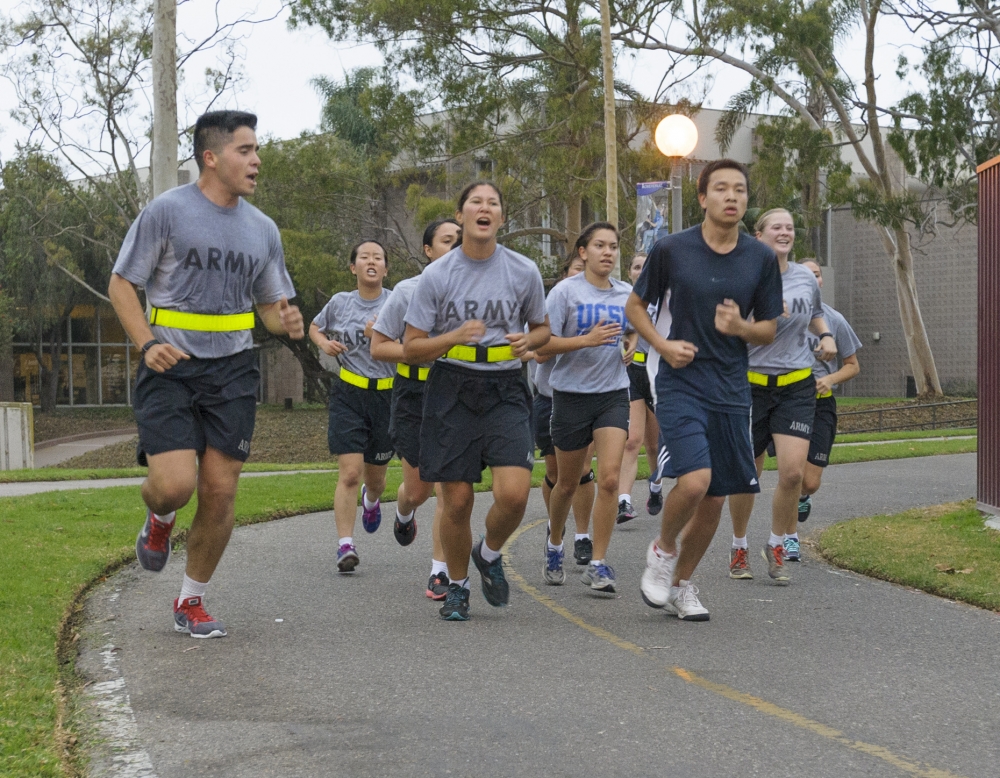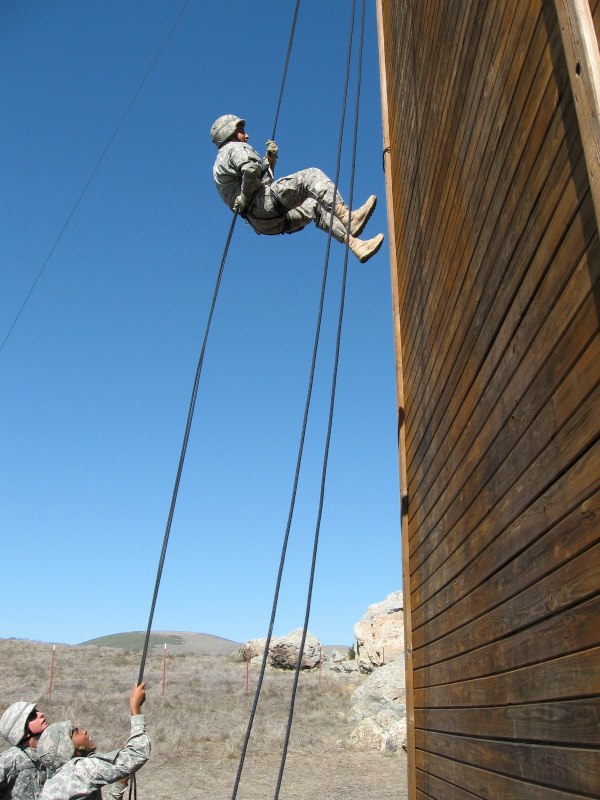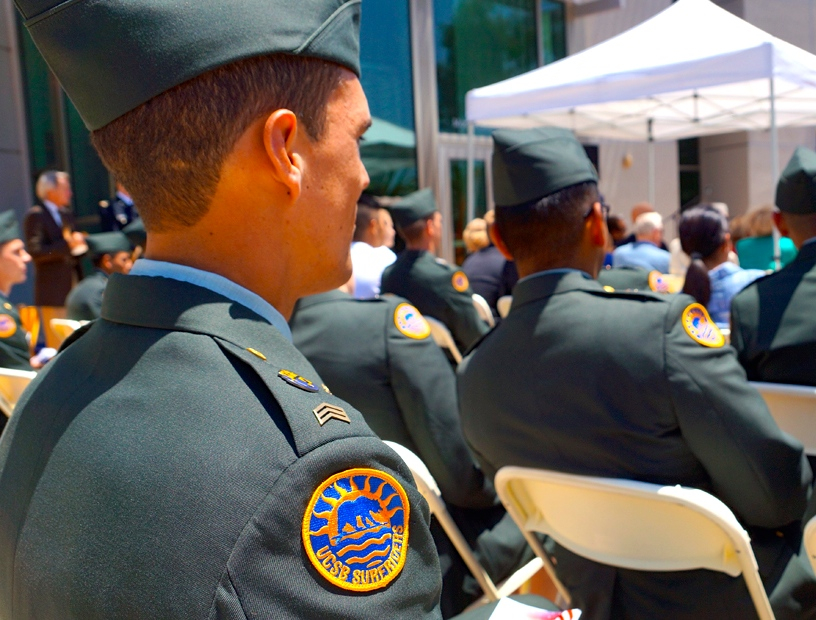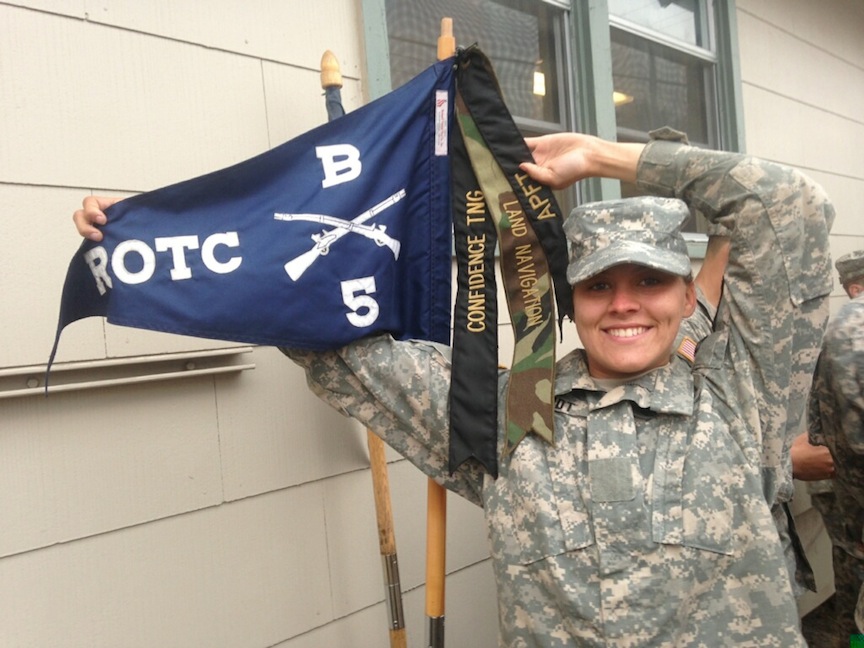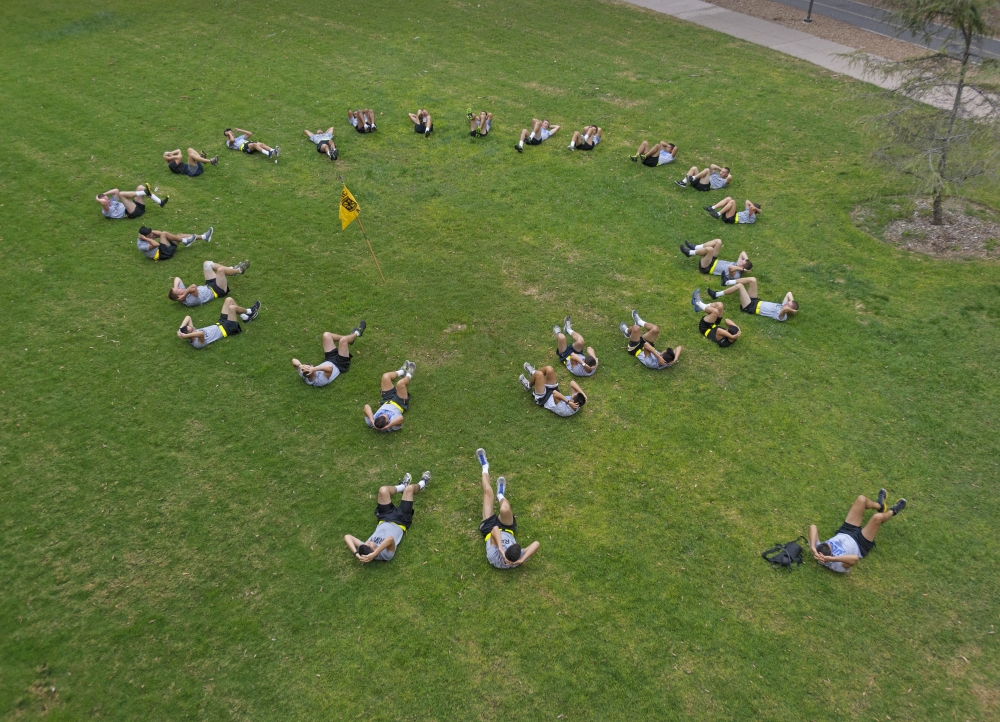Leaders By Example
Roger Drue attended UC Santa Barbara on a whim. A high school sports standout from the Bay Area, he was bound for UCLA and a college football career until a chance stop changed his mind.
“I turned off the freeway at Storke Road to fill up with gas and just never left,” Drue said, recalling that fateful day in 1963. “I drove through Isla Vista, where they had just paved the road, and said, ‘I think this is pretty cool.’ I talked to my dad about transferring to UCSB and he was supportive. That was the end of the story.”
In fact, Drue’s story was only beginning. At that time — the Vietnam War and the draft were in full swing — UCSB required every male student to join the Reserve Officer Training Corps (ROTC), the U.S. Army’s effort to groom students as commanders. Drue joined because he had to; when participation became optional his sophomore year, he stayed on because he so strongly believed in the program that prioritized leadership above all else.
“It wasn’t all training drills and war, though war was on our minds back then,” Drue, who graduated in 1967, said of his time in ROTC. “The whole idea was learning how to manage, how to lead, how to get along with people. They always told us the key is to figure out how to motivate your team members — your company, your battalion, whatever it is — because if you can’t do that, you can’t be successful.”
After spending four years on active duty in Vietnam as a Medical Services Corps captain, Drue moved on to corporate life. He would eventually become the CEO of a multihospital, multiclinic health care system in Hawaii, the capstone on his 30-year career in hospital administration. To this day, he credits his ROTC experience at UCSB for his accomplishments.
“I applied the principles of leadership and keys to success that I learned in ROTC to every job I’ve ever had,” Drue said, “and they were very helpful my entire career.”
Which is exactly the message that UCSB’s ROTC program, known on campus as Surfrider Battalion, aims to impart not only to existing cadets but also to prospective and current students seeking a clear path to employment and beyond.
“I was speaking to a new cadet, a freshman, who told me that part of what drew him to ROTC is knowing that four years from now he has a place to go — a stable job, a career if he wants it,” said Lt. Col. George Davis, commanding officer of the campus program and UCSB Professor of Military Science. “These students are not going through college wondering, ‘What am I going to do when I graduate?’ From day one, they have that security of a job waiting for them. Nowhere else on campus can you get that.
“And there is no other program that offers this degree of leadership training,” Davis added. “Whether you want a military career, a career in corporate America or to start your own business, ROTC will prepare you to lead. That’s what it’s all about.”
Since graduating its first three cadets in 1949, the UCSB battalion has seen nearly 1,100 students commission as second lieutenants in the U.S. Army, U.S. Army Reserve or U.S. Army National Guard. In exchange for college scholarships, they contract to serve four years in active duty, or eight years in the Reserve or Guard. There are currently 70 cadets in the UCSB program; 11 will commission this June.
In addition to financial support, cadets earn a wealth of training in leadership, whether their sights are set on a military career or private industry. By combining management theory with hands-on experience, Army ROTC aims to develop in its cadets the self-discipline, mental agility and interpersonal and communication skills, among other things, seen as essential to commanding a unit — or running a business.
Cadet Alexandria Schmidt has a firm handle on all of the above. Set to graduate UCSB and commission as an Army officer in June, the Bakersfield-born Japanese major said she’s come a long way as a leader since joining ROTC her freshman year.
“Leadership for me is about influencing others and setting the example — not only for my subordinates but also for my peers — under any circumstance,” Schmidt said. “And thanks to my experience in ROTC, I feel more confident making difficult decisions or completing difficult tasks without feeling overwhelmed. And I now feel very comfortable and confident facing a task I may not have been familiar with previously.”
She can prove it, too.
With an overall rating of “E,” for “Exceeds the Standard,” Schmidt was a Surfrider standout last summer at the Leadership Development and Assessment Course (LDAC), a requirement for all third-year ROTC cadets nationwide and a key factor in determining post-commission assignments. The better a cadet’s score, the better the chance of landing in his or her preferred branch; Schmidt is keen on military intelligence.
“It would have been much more difficult to get this much leadership experience without ROTC,” Schmidt added. “My roommate helps put on events as part of an internship, where she organizes based on what her employer wants. In ROTC, we are charged to put on events that we develop, set up and run on our own.
“Good leaders are people who can convince others to trust them and to believe in the goal of their mission,” she added. “Sometimes being a good leader means you can follow orders as well.”
Army 1st Lt. Jon Kopecky does all of that and more in the Armor Branch. A 2012 UCSB grad, he’s a recent addition to a Surfrider alumni list that includes Brig. Gen. Chester Ward (1954), who became a White House physician; Robert Ballard (1965), the oceanographer and explorer best known for discovering the wreckage of the Titanic; and Brig. Gen. Eric Wendt (1986), currently the commanding general of Special Operations for U.S. Forces Korea.
Kopecky is in notable company, to say the least.
Crediting ROTC with giving him “direction and motivation” as a college student, as well as a “sense of purpose upon graduation,” Kopecky said the leadership ethics he gleaned as a Surfrider are directly connected to his current success.
“Now, as a lieutenant, the Army has given me a whole host of opportunities,” he said. “I lead and mentor soldiers from all backgrounds and walks of life, I am mentored by experienced soldiers who have made a career out of leadership and I regularly plan and accomplish complex, challenging missions. I am paid to travel and held to a standard of excellence in performance and physical fitness. And I am paid comparably to most of my fellow graduates of UCSB who became accountants, consultants or engineers in the civilian workforce.
“Whether I choose to stay in the Army for several years or go into the civilian world,” Kopecky continued, “I feel that I will do so with virtually endless opportunities, thanks in large part to the foundation of success that UCSB ROTC helped me build.”
